For Educational Creators
Change your Foreign Accent using Hollywood Accent Techniques
so you can make more money from your content & ads targeting Americans
Apply to Work with Me

I've been working with Dillon forover three onths, and it's been quite a journey to re-learn English. His approach helpedme understand things that nevr made sense befoe - and now they're crystal clear. Dillon has an incredibly ability to break down pronunciaton and speech patterns in a way that feels natural and achievable. I can honestly say my confidence and clarity have improved dramatically. Highly recommend!
Dillon is an amazing accent coach. He's patient, knowledgeable, and genuinely invested in my progress. After just a few months, my English has improved a lot and I keep getting compliments. Highly recommend!
My main criterion for a teacher is always simple: those who take a skill for granted might not know how to gain it, but someone who has overcome the same issues I face would be able to relate and guide me effectively. I'm now a grateful student of Dillon's and I'm extremely satisfied with the progress I've made in this short time. Dillon was never late for a lesson and remained extremely flexible with my occasonally changing schedule. He provided critical feedback that helped me to recognize my incorrect pronunciation habits and learn the correct patterns. I can't stop laughing when I watch recordings of myself speaking English from that pre-study period. More importantly, given the pace of my improvement, I'm confident that in two months I'll be laughing at the pronunciaton of my current self.
I really liked working with Dillon. Hehelped me a lot to improve my pronunciation and feel more confident when I speak. Now, when people ask me to repeat the sentence, I know how to sound more clear. I think Dillon's strategy is very efficient. If you are ready to work hard, he can really help you. Something that they don't teach you at school, he is able to explain very clearly and train you to do. Dillon is also a very nice person, and it was a pleasure to interact with him. I highly recommend Dillon as your accent tutor.
I have been studying with Dillon for the past two months and have felt improvement and gained much confidence in my speaking. I fully recommend him as a tutor for accent and pronunciaton. Dillon's personal journey resonated with me, making it easier to work with him. He uses sound mechanics, word stress, and linking to make learning efficient. He is knowledgeable and pays great attention to detail. I highly recommend Dillon as an accent reduction coach.
I loved my sessions with Dillon. I met him after my relocation to the US and thanks to his professionalism I have improved my accent. I'm originally from Russia and we do have some rough edges, different tone and general speaking difficulty to speak with fluidity. I appreciate Dillon's help and effort. Despite my desire to laugh and joke during our classes he kept me focused on my work and made sure there was huge progress.
FREE Mini-Course
How I changed my own strong foreign accent using Hollywood Accent Techniques
What is "Accent Reduction" ?
Believe it or not, this can be a controversial topic for some. The term is quite simple to explain. ...more
Process
July 27, 2025•6 min read

Your Foreign Accent ≠ Your Identity
Your foreign accent is NOT part of your identity. There. I said it. ...more
Process
July 27, 2025•5 min read
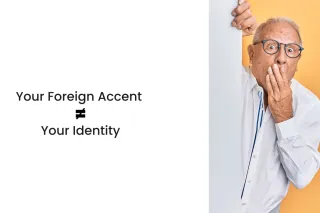
Why Speaking More Won't Fix Your Accent
Speaking more doesn't fix your accent. You just keep making the same mistakes. ...more
Process
July 20, 2025•5 min read

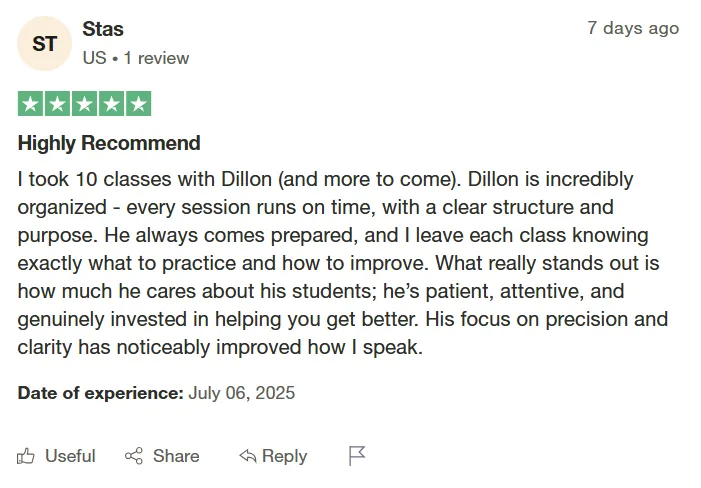
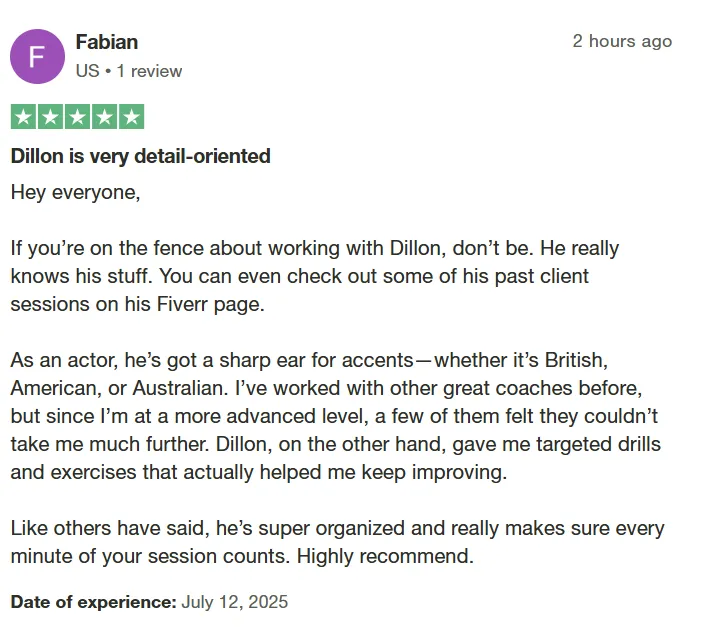
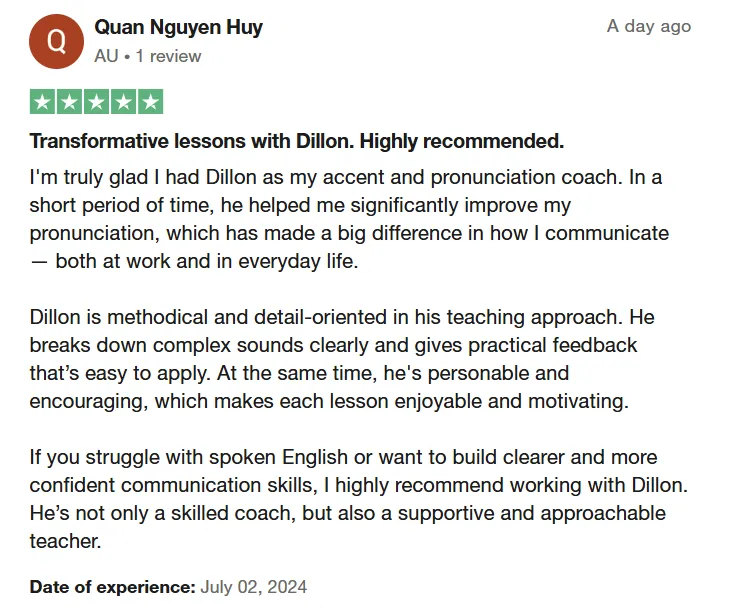
About my Method
The most common thing I encounter when I work with clients that have worked with other coaches before is this:
They have lots of theoretical knowledge.
But: they're not actually able to apply it well while speaking.
Theoretical knowledge is important but does not equate to actual skill.
I call my way of approaching accent reduction the UDS Method.
This stands for: Understand - Drill - Simulate
Pretty simple. All three steps are equally important.
Think of a three legged stool. You remove one leg, it falls over.
Understand = that's the easiest and fastest part. You can easily go and look up any American sound on YouTube right now to understand how it works very quickly. The difficult part is being able to implement this knowledge into the way you speak.
Drill = an incredibly important step where most people fall short. They think just understanding and then immediately trying to jump into speaking is how they will get to their goal. Based on many, many, many classes with clients I can confidently tell you this simply doesn't work. For most people, in an actual conversation, there's too much going on at the same time for you to adequately catch the sounds. You need to build habits first. This is the goal of the drill step.
Simulate = This is where I use my acting training to help you get to your goal. This is basically "roleplaying" in more advanced scenarios (scripted and improvised) to make sure that we truly pressure test the habits you have built in the previous step (drill). This is by far the hardest step and requires us to have done really solid work in the first two steps. As a result, you will fail a lot in this step. This is good. Because it exposes your weak points and shows you what you need to drill more.
Frequently Asked Questions
The most common questions around changing your accent in one place.
How long does it take to transform your accent?
It all depends on the method you're using. Self-study, choosing cheap options like AI apps.. those take a long time to bring about any meaningful change.
However, working with someone that has actually transformed their own accent and uses a time proven system to help others do the same? That gets you results much faster. I use the same methods actors like Daniel Day-Lewis and Christian Bale use to prepare for movie roles.
Now, all I can do is lay out the path. It's up to you to take the necessary steps. All I can do is show you what to do, why to do it, when to do it, and how to do it. If you take consistent action, practice with intention and show up for yourself and your goals, you can make progress very quickly.
You could be speaking very differently in a matter of just a few months. You could be speaking clearly and confidently. If you put in the work and follow the path.
Why should I learn from you?
If you had to go to the gym and get jacked, and you could choose between two trainers, who would you pick?
#1: an exercise scientist that has thin, spindly arms and legs
#2: an exercise scientist that is in excellent physical shape and health
Obviously #2.
Why? Because having actually done the thing matters.
I used to be in your exact situation. I came to the US with a strong accent that was a major obstacle to my goals. I put in the hours. I did the work.
On top of that, the methods I use are not just theory thought up by some linguists that have never worked with a person 1-on-1.
I studied the craft of acting at the William Esper Studio in New York City. The methods I use are actively being used by actors to prepare for big roles.
What about your method is different from other coaches?
I've had lots of clients come to me after studying with other coaches or after having purchased courses that didn't work for them. Do you know why?
Because what most people focus on most is the acquisition of knowledge, not actual skill.
This is why they (and probably you if you're reading this) get stuck in a specific spot: you know a lot of things about the American accent but you're not able to consistently apply that knowledge in a live situation.
This is why my method focuses on habit building. We need to get you so good, so comfortable with what you're learning that you are able to go into a high stakes situation (e.g. sales pitches, meetings, presentations, product demos) and focus on the ideas you're trying to communicate. Not feel self conscious about the way you speak.
I'm from [insert country], have you ever worked with somebody like me before?
Odds are, I have. However, I haven't worked with someone from every single country on earth so it's perfectly possible that I have not worked with somebody of your nationality before.
The process of transforming your accent is the same, regardless of your native accent. The things that will differ are the mistakes you are making.
The process to fixing those mistakes is always the same:
-understand what the mistake is
-understand how to make the correct sound
-drill the correct sound to build habits
-simulate live situations to pressure test those habits
Client Testimonials
Dominik
from Slovakia
Pei
From China
Quan
From Vietnam
Alena
From Belarus
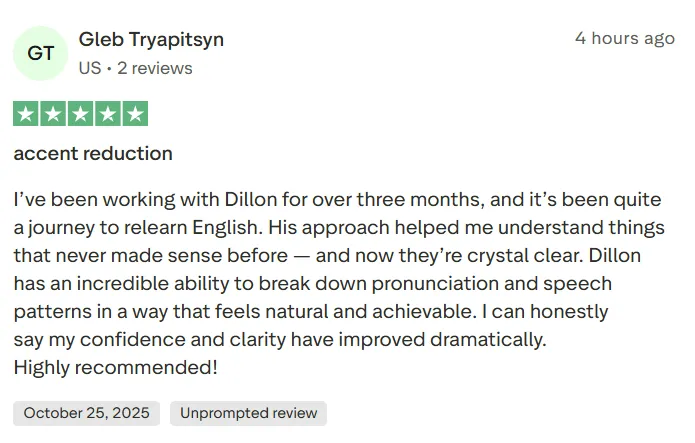

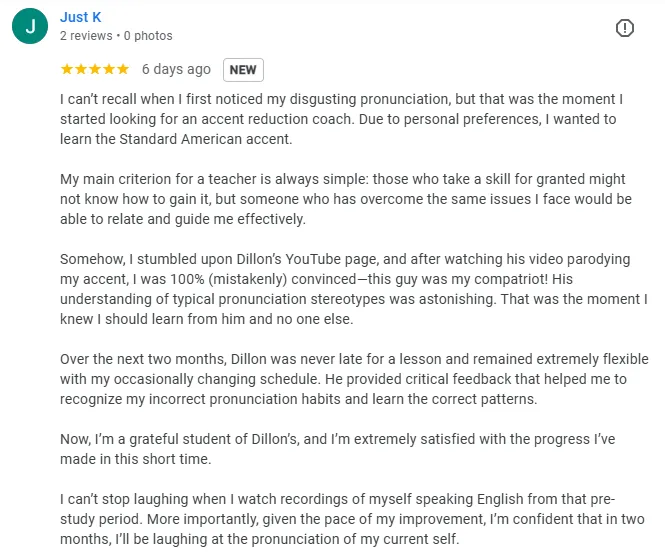
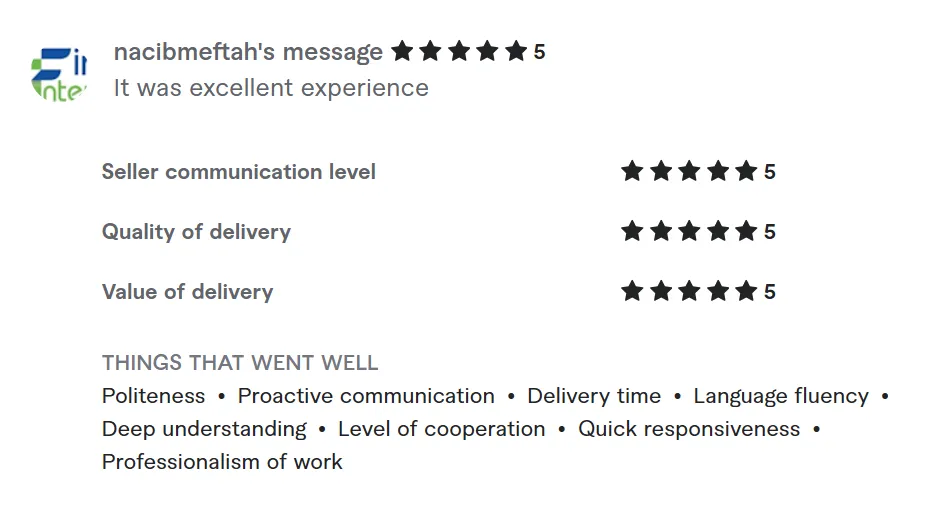

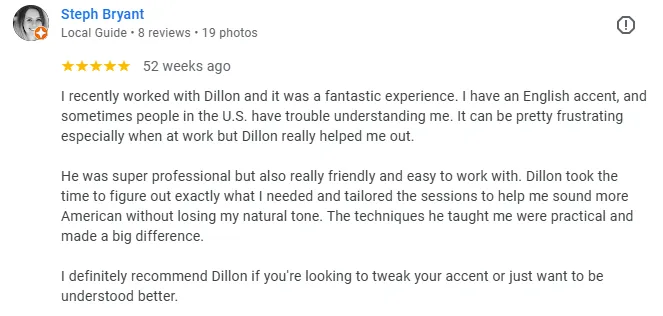
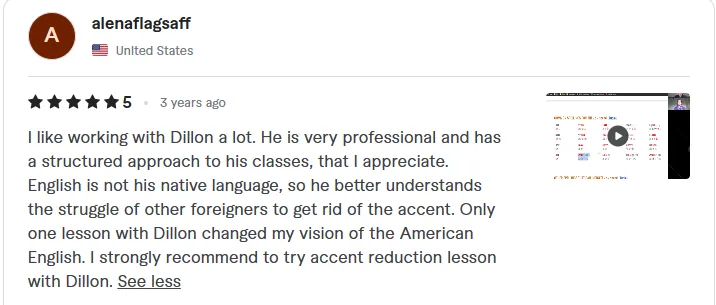
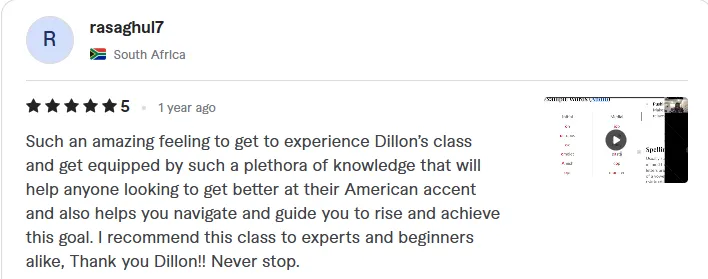





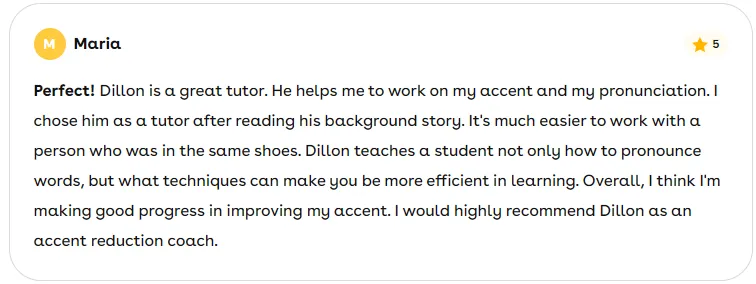




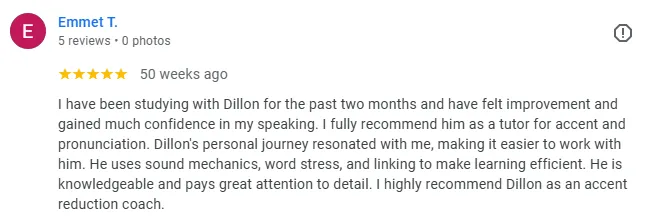
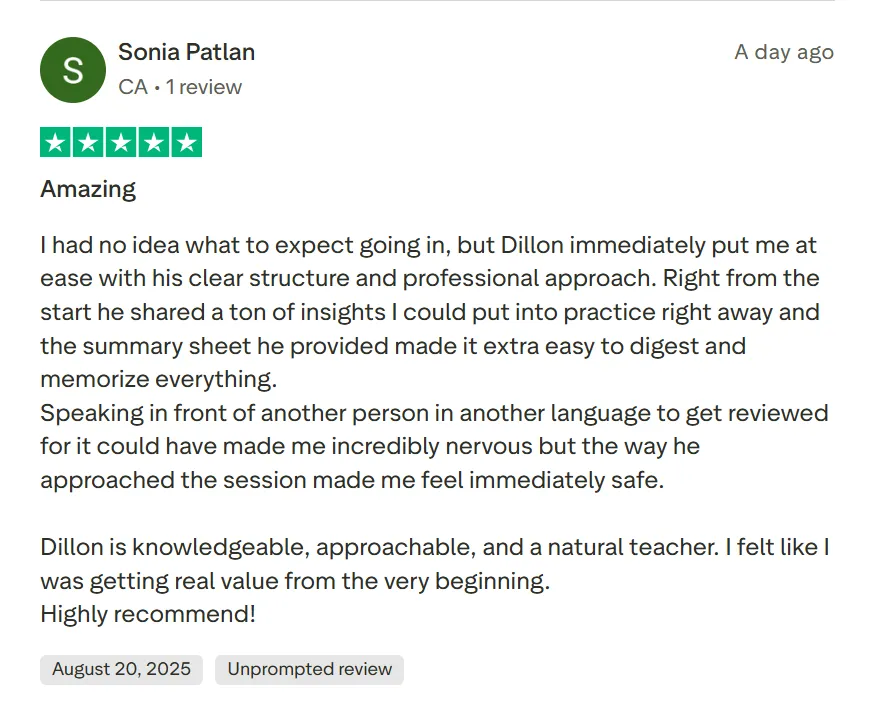
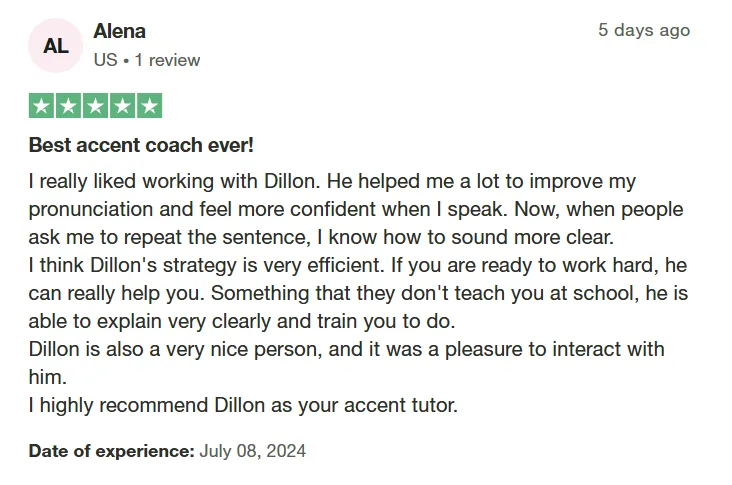
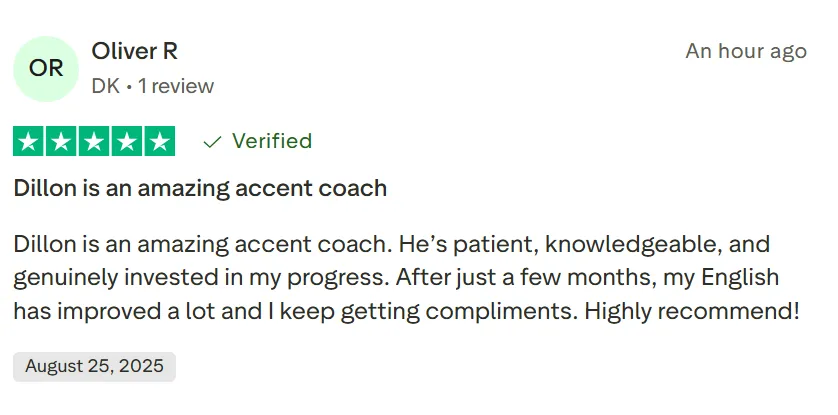
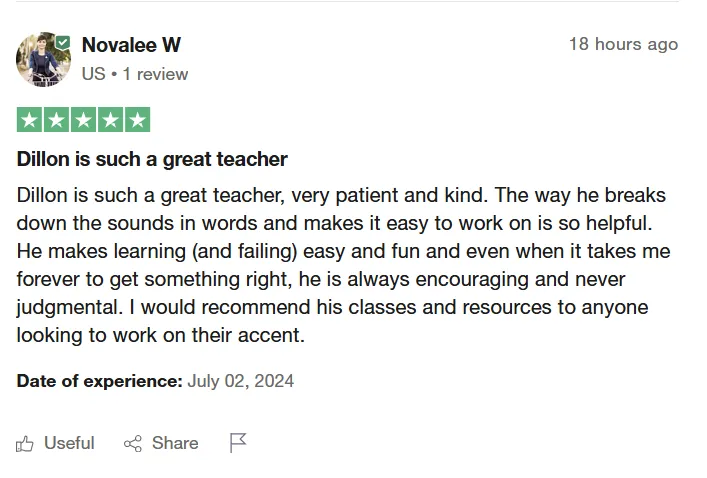
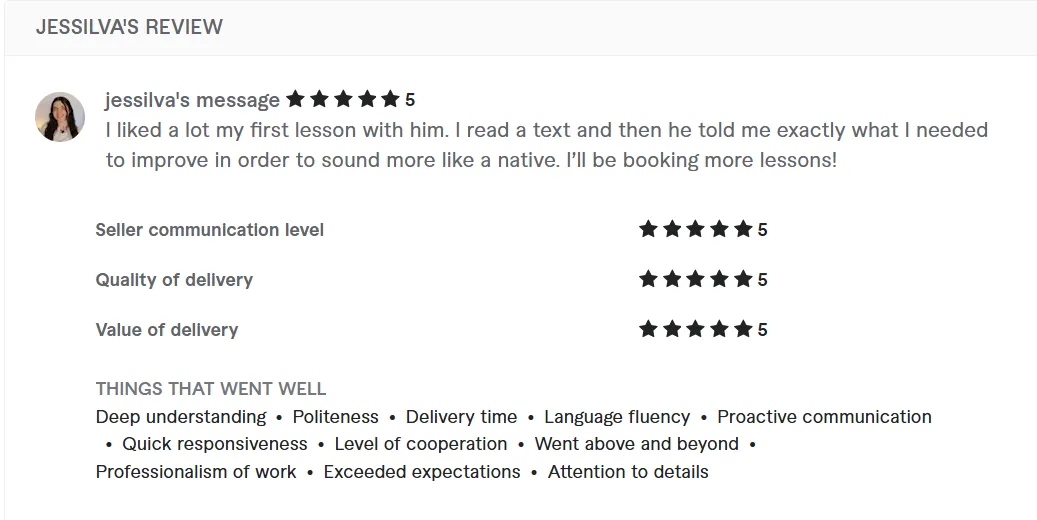
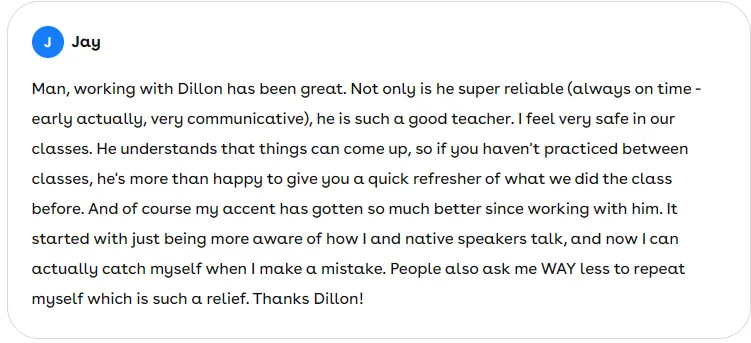
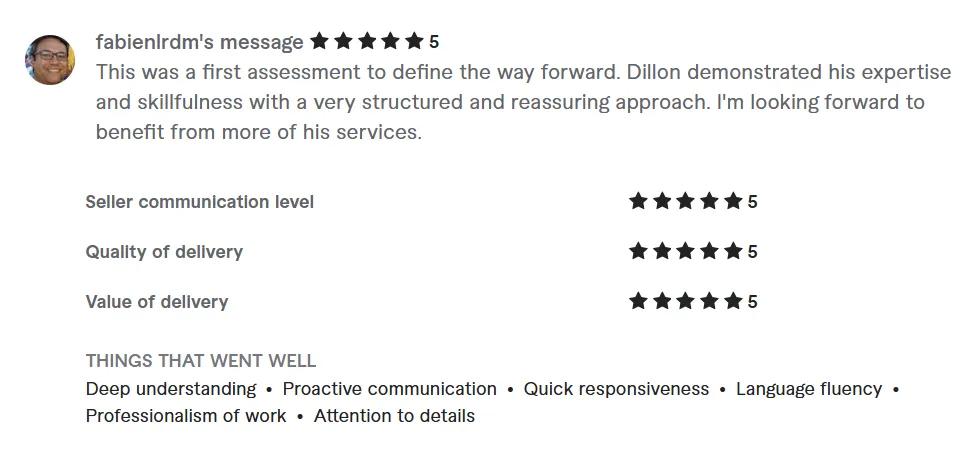
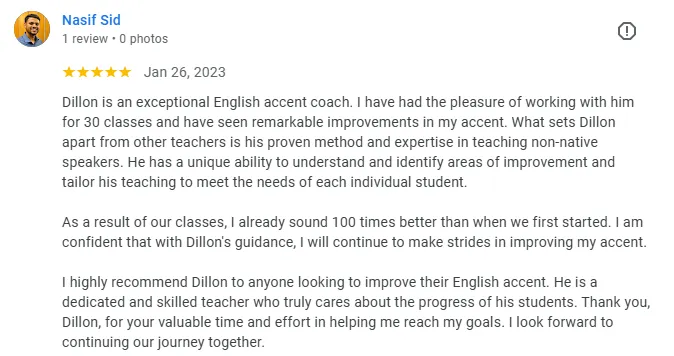
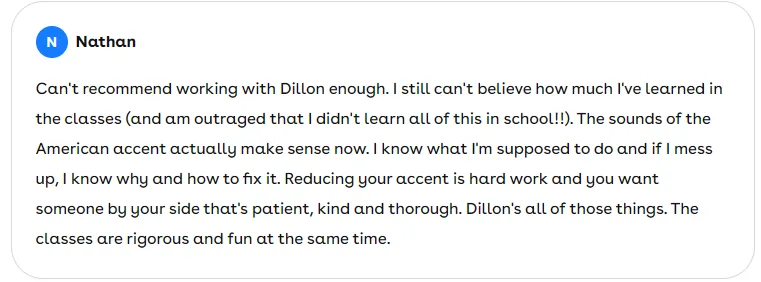


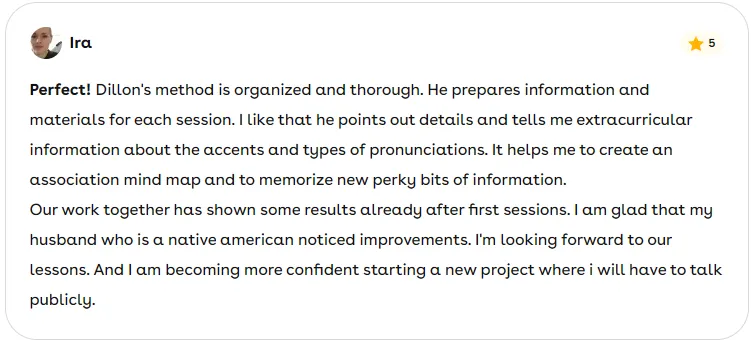


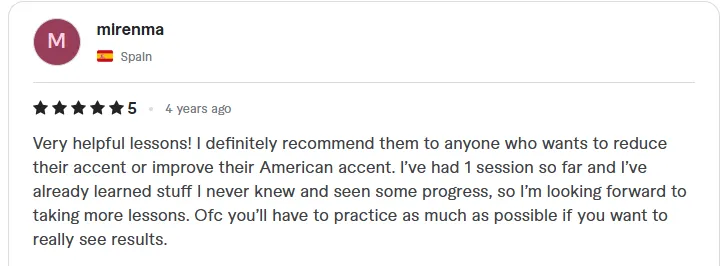






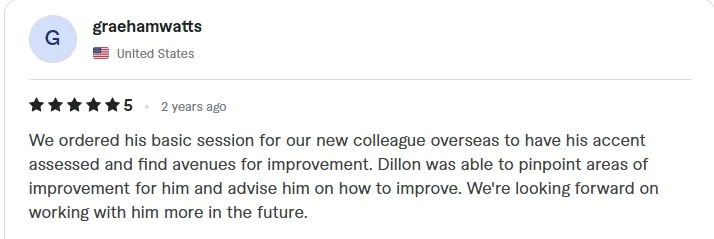
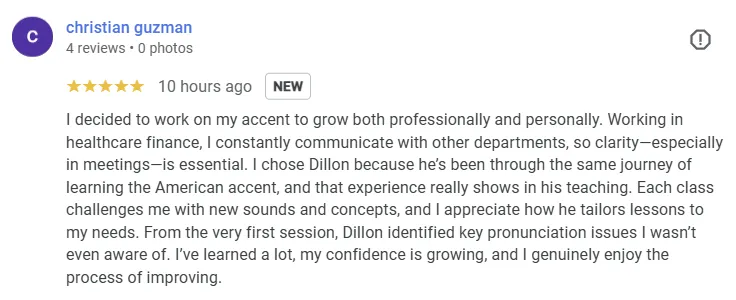

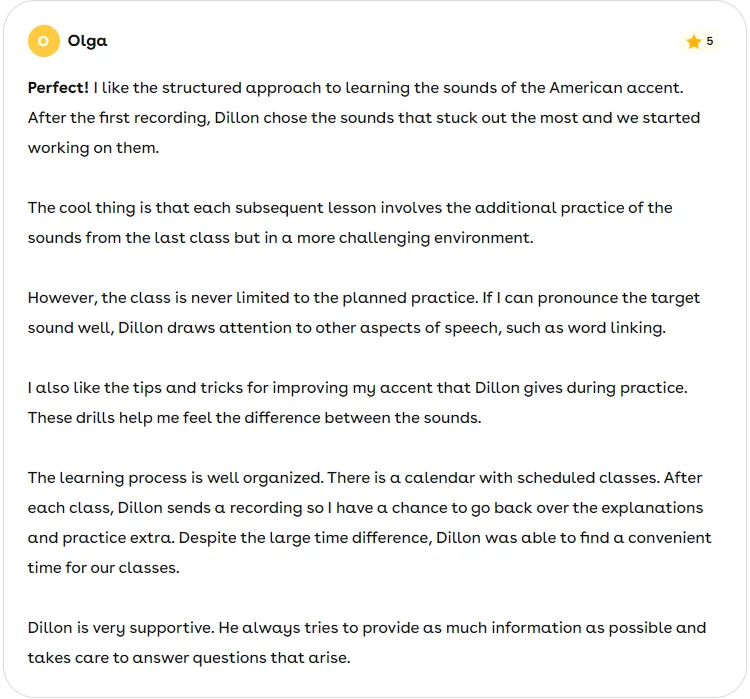
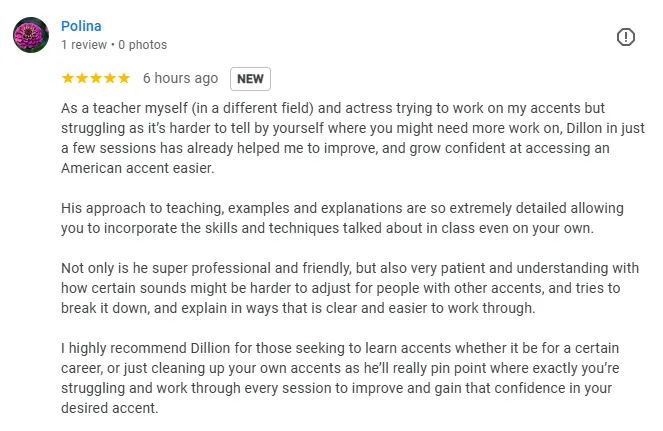
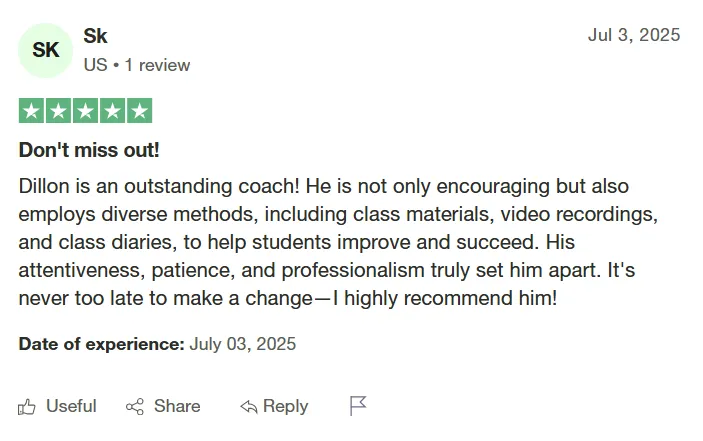


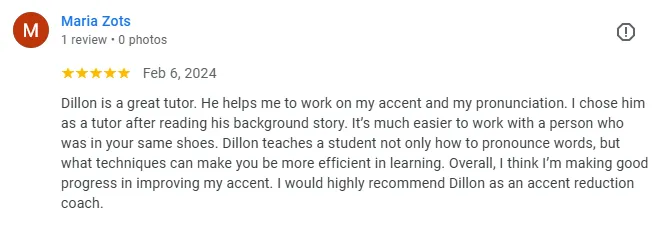




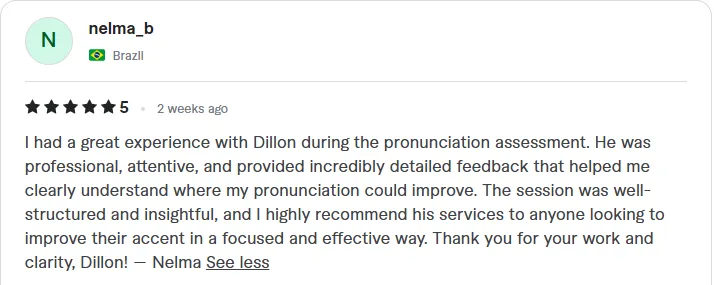

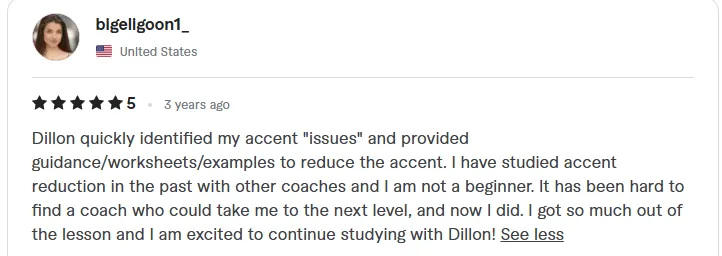
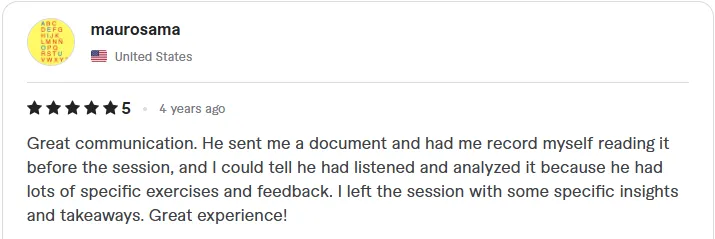


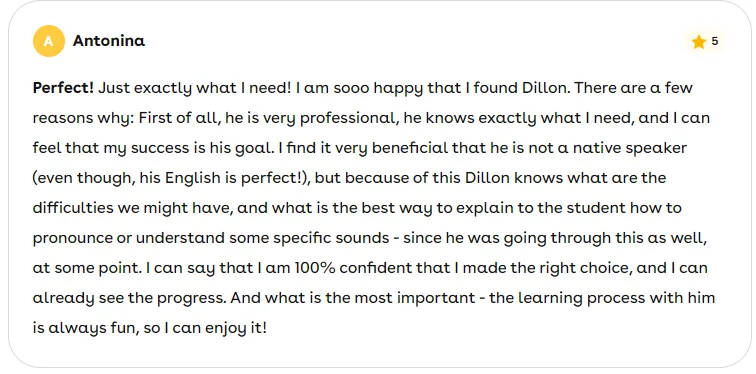


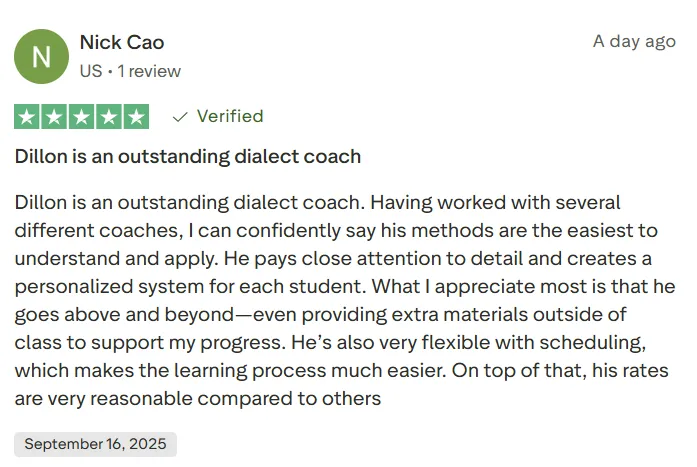
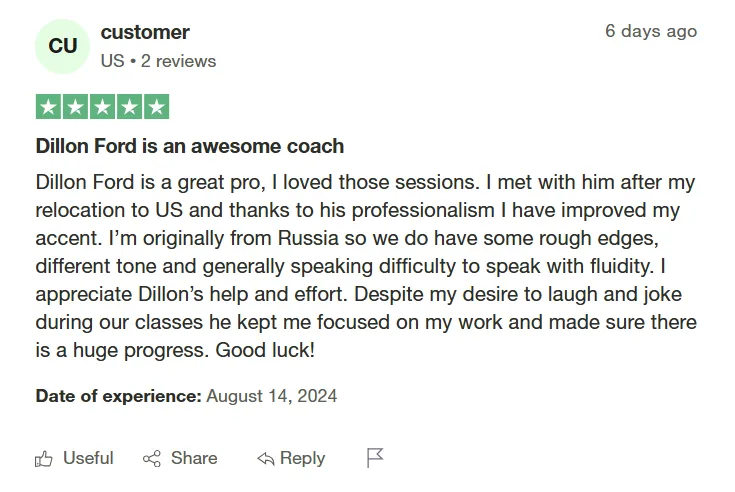


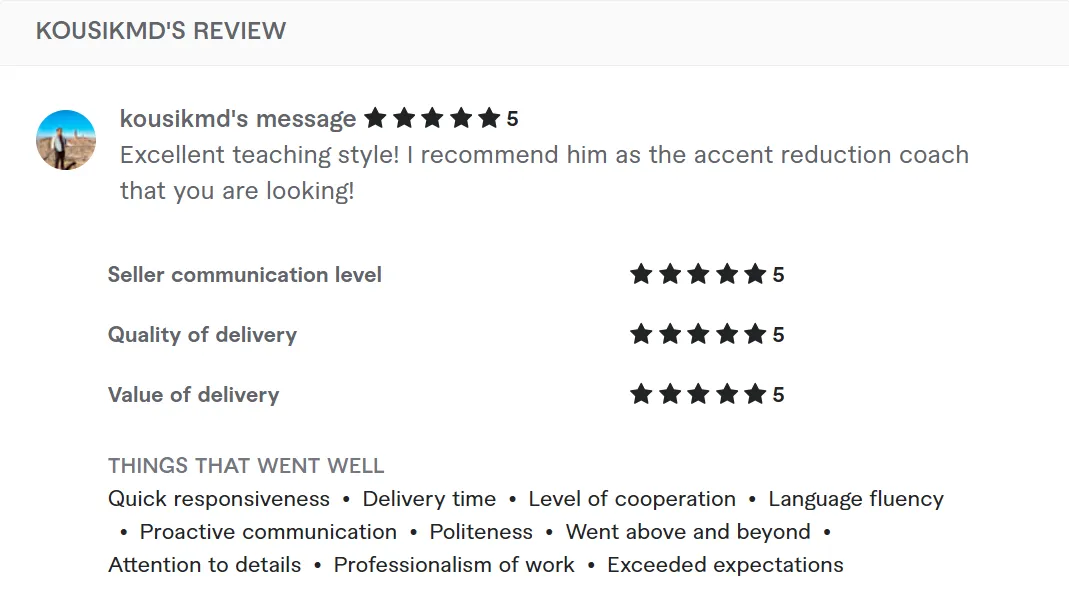
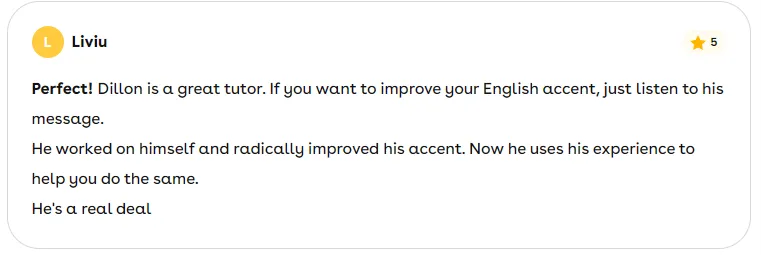


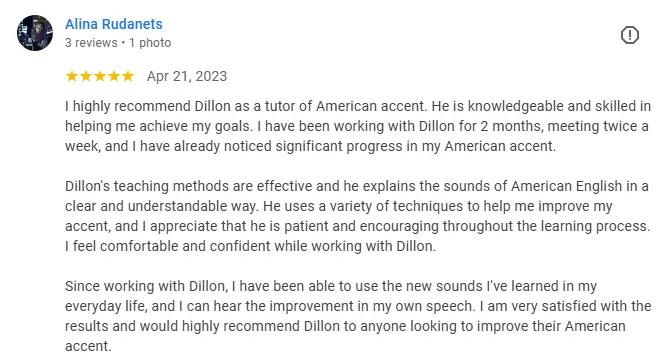
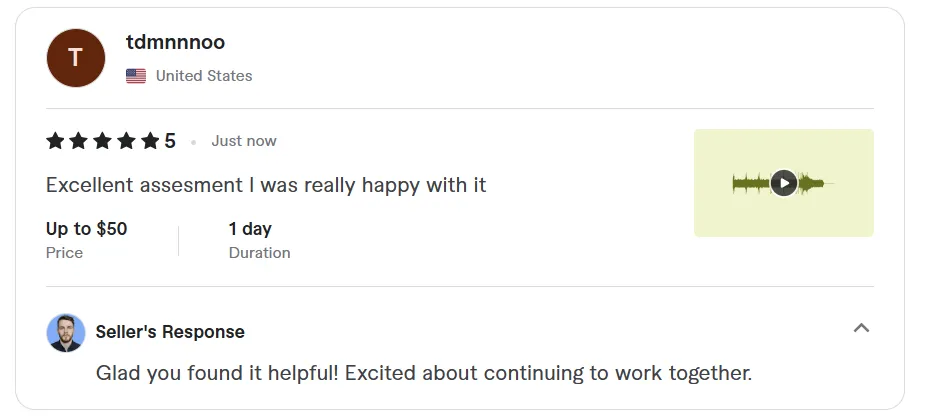

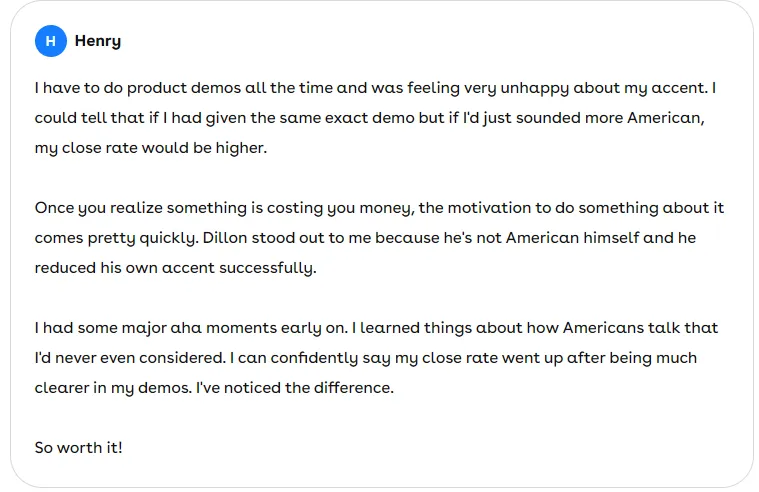


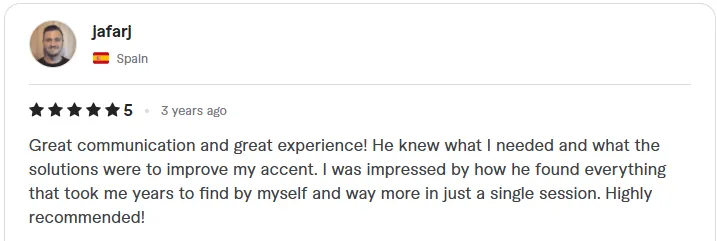






Copyrights 2025 | Accent Change by Dialect Work | Terms & Conditions | Privacy Policy